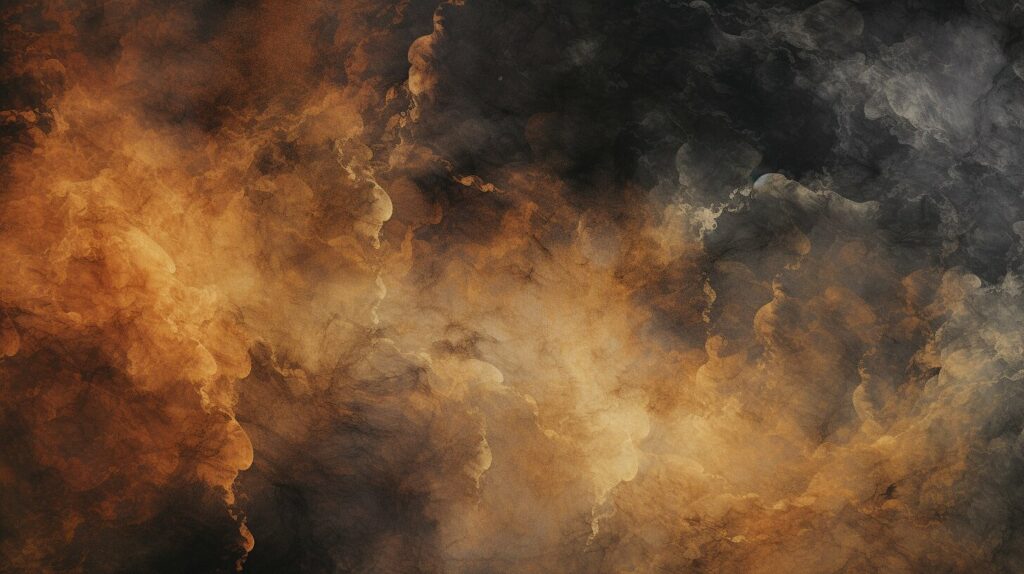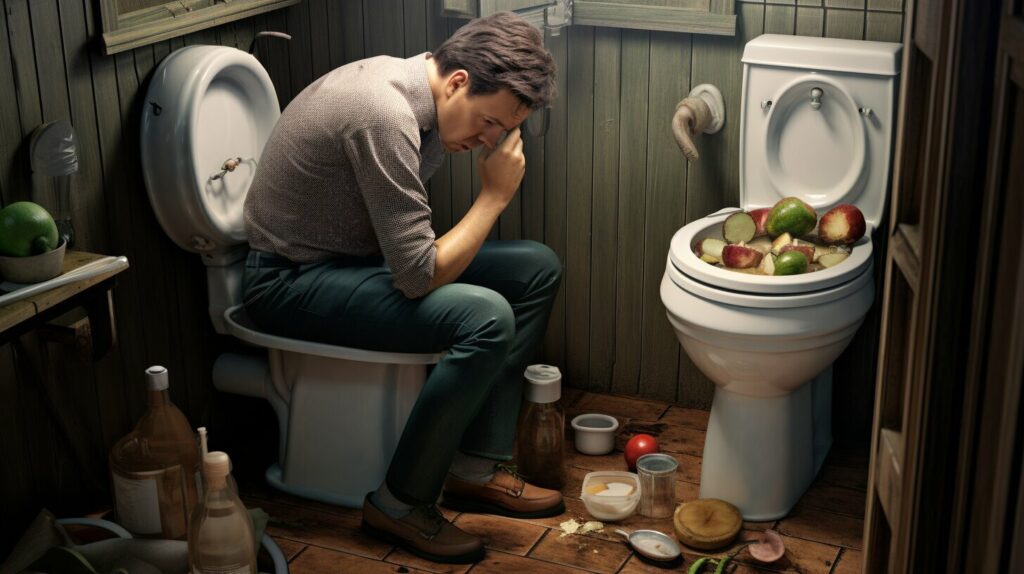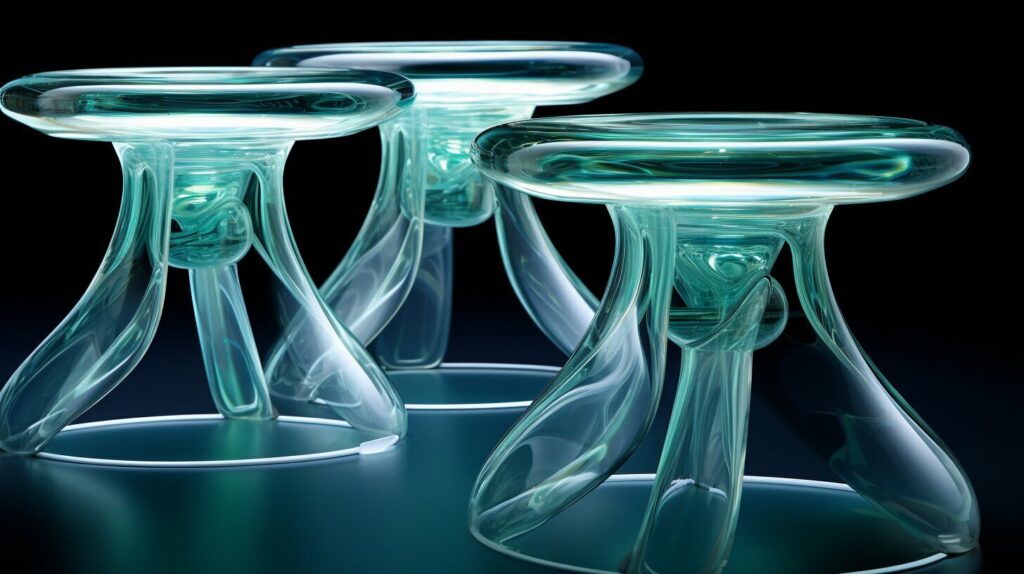Welcome to this article where I will delve into the topic of water fasting diarrhea. While water fasting is a popular method for weight loss and overall health, it’s important to understand the potential side effects that may arise during the fasting period. Diarrhea during fasting is not normal and can have detrimental effects on your well-being. In this article, I will shed light on the causes of diarrhea during water fasting and provide solutions to prevent and manage this uncomfortable condition.
Key Takeaways:
- Diarrhea during water fasting is not normal and should be taken seriously.
- Causes of diarrhea during fasting include excessive electrolyte intake, caffeine consumption, and the use of zero-calorie sweeteners.
- Side effects of diarrhea during fasting can lead to severe dehydration and other symptoms like blurry vision, dry mouth, and dizziness.
- To prevent diarrhea during fasting, it’s important to stay hydrated, be mindful of electrolyte intake, and make dietary adjustments when breaking the fast.
- If diarrhea persists or is accompanied by severe symptoms, seek medical attention.
Is Diarrhea During Fasting Normal?
While it is rare to experience diarrhea during fasting, it can happen. Diarrhea is caused by food and water moving too quickly through the digestive system, resulting in undigested food and a lack of nutrient absorption. Diarrhea during fasting is not normal and should be taken seriously. It is recommended to end the fast immediately if diarrhea occurs during a water fast, as it can lead to dehydration and other complications.

Diarrhea during fasting is a sign that something is not right in the body. The rapid movement of food and water through the digestive system can indicate an imbalance or irritation in the gut. It is important to listen to your body and prioritize your health when engaging in fasting practices.
While occasional digestive disturbances may be expected during a fast, persistent or severe diarrhea should not be ignored. It is essential to seek medical attention if symptoms worsen or persist for more than a day. Remember, fasting should be a positive and beneficial experience for both the mind and body, and any adverse effects should be addressed promptly.
Causes of Diarrhea During Fasting
Diarrhea during fasting can be attributed to several causes that are important to be aware of. While fasting itself does not typically lead to diarrhea, certain factors can contribute to this unpleasant symptom. One possible cause is the consumption of excess electrolytes on an empty stomach. Electrolytes like magnesium, potassium, calcium, and sodium, when taken in excessive amounts while fasting, can disrupt the digestive system and result in diarrhea.
Caffeinated drinks, such as coffee and tea, can also be a culprit behind diarrhea during fasting. The stimulating effects of caffeine can accelerate the movement of food through the digestive tract, leading to watery stools. Additionally, artificial sweeteners like aspartame and sugar alcohols, commonly found in zero-calorie products, can cause digestive distress and diarrhea when consumed during fasting.
It’s important to be mindful of these potential causes and make adjustments to your fasting routine accordingly. By avoiding excessive electrolyte intake, refraining from consuming caffeinated beverages, and eliminating zero-calorie sweeteners, you can help minimize the risk of experiencing diarrhea during fasting.
| Possible Causes of Diarrhea During Fasting |
|---|
| Excess electrolyte intake, such as magnesium, potassium, calcium, and sodium |
| Caffeinated drinks like coffee and tea |
| Zero-calorie sweeteners such as aspartame and sugar alcohols |
Side Effects of Diarrhea During Fasting
Diarrhea during fasting can have various side effects and should not be ignored. One of the most immediate concerns is dehydration. Fasting already causes water weight loss, and diarrhea can exacerbate this condition. Dehydration can lead to symptoms such as blurry vision, dry mouth, dizziness, nausea, headache, cramping, and bloating. It is crucial to increase water intake and balance electrolytes if diarrhea occurs during fasting to prevent further complications.
If diarrhea persists for multiple days or is accompanied by severe abdominal pain, fever, bloody stool, loss of consciousness, or persistent fatigue, it is recommended to stop fasting and seek medical attention. These symptoms could indicate an underlying condition that needs to be addressed by a healthcare professional. Ignoring these signs can lead to further complications and delay proper treatment.
It is important to note that diarrhea during fasting can also disrupt the body’s nutrient absorption. Diarrhea can prevent the body from absorbing essential vitamins, minerals, and nutrients, leading to deficiencies. This can further impact overall health and wellbeing. Therefore, managing and resolving diarrhea during fasting is crucial to ensure a safe and effective fasting experience.
Table: Comparison of Dehydration Symptoms and Severe Complications
| Dehydration Symptoms | Severe Complications |
|---|---|
| Blurry vision | Severe abdominal pain |
| Dry mouth | Fever |
| Dizziness | Bloody stool |
| Nausea | Loss of consciousness |
| Headache | Persistent fatigue |
| Cramping | |
| Bloating |
Remember, if you experience any of the severe complications mentioned in the table, it is crucial to seek immediate medical attention to determine the underlying cause and receive appropriate treatment.
Overall, diarrhea during fasting can have several side effects, including dehydration, nutrient deficiencies, and disruptions to the body’s overall functioning. It is important to be vigilant, maintain proper hydration, and seek medical attention if necessary to ensure a safe and successful fasting experience.
How to Prevent Diarrhea During Fasting
Diarrhea during fasting can be a disruptive and uncomfortable experience. Fortunately, there are several measures you can take to prevent diarrhea and ensure a smoother fasting journey. Here are some strategies to consider:
1. Stay Hydrated
Proper hydration is key to maintaining a healthy digestive system during fasting. Make sure to drink plenty of water throughout the day to prevent dehydration and promote regular bowel movements. Aim for at least 8 cups of water per day, or more if you engage in physical activity.
2. Watch Your Electrolyte Intake
While electrolytes are essential for overall health, excessive intake can contribute to diarrhea. Be mindful of your electrolyte consumption during fasting and avoid overdoing it. Stick to recommended daily intake guidelines to maintain a balance and prevent digestive disturbances.
3. Eliminate Trigger Foods and Drinks
Certain foods and drinks can irritate the digestive system and lead to diarrhea during fasting. Caffeinated beverages like coffee and tea, as well as zero-calorie sweeteners, can be potential triggers. Consider eliminating these from your fasting routine to see if it helps alleviate diarrhea symptoms.
By following these prevention strategies, you can minimize the risk of experiencing diarrhea during fasting and have a more comfortable and successful fasting journey.

Does Intermittent Fasting Cause Diarrhea?
Intermittent fasting has gained popularity as a means of achieving weight loss and improving overall health. However, some individuals may experience diarrhea as a side effect of intermittent fasting. While it is not a common occurrence, it is important to understand the potential causes and how to manage it effectively.
One possible cause of diarrhea during intermittent fasting is the consumption of excessive water. When you drink large amounts of water while fasting, it can create an imbalance in your body, leading to diarrhea. It is crucial to stay hydrated during fasting, but it is equally important to avoid drinking excessive amounts of water, especially if you are experiencing diarrhea.
Another factor that can contribute to diarrhea during intermittent fasting is engaging in vigorous exercise while dehydrated. Diarrhea can lead to fluid loss and electrolyte imbalances in the body. If you are experiencing repeated episodes of diarrhea during intermittent fasting, it is advisable to break the fast and replenish fluids with oral rehydration solutions.
To manage diarrhea during intermittent fasting, it is essential to focus on hydration and electrolyte balance. Drinking oral rehydration solutions can help replenish fluids and electrolytes lost during diarrhea. Additionally, gradually reintroducing semi-solid and low-fiber foods into your diet can aid in managing diarrhea. Probiotics may also be beneficial in restoring gut health and preventing diarrhea.
| Causes of Diarrhea During Intermittent Fasting | Management Strategies |
|---|---|
| Excessive water intake | Be mindful of hydration and avoid drinking excessive amounts of water |
| Vigorous exercise while dehydrated | Break the fast, replenish fluids with oral rehydration solutions |
| Poor hydration and electrolyte balance | Drink oral rehydration solutions, gradually reintroduce semi-solid and low-fiber foods |
| Imbalance in gut bacteria | Consider incorporating probiotics into your fasting routine |
By being aware of these causes and implementing effective management strategies, you can minimize the occurrence of diarrhea during intermittent fasting and have a more comfortable fasting experience. However, if diarrhea persists or is accompanied by severe symptoms, it is important to seek medical attention to rule out any underlying medical conditions or complications.

Diarrhea and Other Digestive Issues with Water Fasting
Water fasting, a practice of consuming only water and no food, can have various effects on the digestive system. While some individuals may experience positive outcomes such as improved gut health, others may encounter digestive issues like diarrhea. It is crucial to understand the potential triggers and make dietary adjustments to prevent and manage these issues effectively.
Causes of Digestive Issues: Several factors can contribute to diarrhea during water fasting. Excessive caffeine consumption, such as drinking coffee or tea, can stimulate bowel movements and result in loose stools. For individuals with lactose intolerance, consuming dairy products during a water fast can lead to gastrointestinal discomfort and diarrhea. Following a poor diet or consuming foods that trigger allergies or sensitivities may also cause digestive issues during water fasting.
Managing Digestive Issues: To manage diarrhea and other digestive issues during water fasting, it is essential to prioritize hydration. Drinking adequate amounts of water and electrolyte-rich fluids can help maintain the body’s fluid balance and prevent dehydration. Additionally, introducing probiotics into the diet can support gut health and alleviate diarrhea. Monitoring and addressing underlying gut health concerns, such as gut dysbiosis, can further aid in managing digestive issues during water fasting.
| Possible Causes of Digestive Issues During Water Fasting | Solutions |
|---|---|
| Excessive caffeine consumption | Avoid coffee, tea, and other caffeinated beverages during water fasting |
| Lactose intolerance | Avoid dairy products during water fasting or opt for lactose-free alternatives |
| Poor diet or trigger foods | Follow a balanced and nutritious diet during the refeeding phase, focusing on easily digestible foods |
| Gastrointestinal infections | Seek medical attention and follow appropriate treatment if an infection is suspected |
| Food allergies or sensitivities | Avoid known allergens or trigger foods during water fasting |
By adopting these strategies and taking a proactive approach to address potential triggers, individuals can minimize the risk of experiencing diarrhea and other digestive issues during water fasting. However, it is essential to listen to your body and consult with a healthcare professional if symptoms persist or worsen.
Managing Diarrhea During Water Fast
Experiencing diarrhea during a water fast can be concerning, but there are steps you can take to manage it effectively. If diarrhea occurs, it is recommended to end the fast and seek medical attention if symptoms persist or worsen. The priority should be rehydration, as diarrhea can lead to dehydration. Drinking plenty of water and using oral rehydration solutions can help replenish fluids and restore electrolyte balance.
Gradually reintroducing semi-solid and low-fiber foods into your diet can aid in managing diarrhea during a water fast. This approach allows your digestive system to adjust gradually without overwhelming it. Additionally, incorporating probiotics into your routine may be beneficial in restoring gut health and preventing diarrhea. Probiotics help promote a healthy balance of gut bacteria, which can contribute to better digestive function.
It is important to listen to your body and give it the rest and care it needs during a water fast. If diarrhea persists or is accompanied by severe symptoms such as fever or bloody stool, it is crucial to seek medical attention. Remember, your health and well-being should always come first when embarking on any fasting journey.
| Methods for Managing Diarrhea During Water Fast | Benefits |
|---|---|
| End the fast and seek medical attention | – Ensure safety and receive appropriate medical advice |
| Stay hydrated and use oral rehydration solutions | – Replenish fluids and maintain electrolyte balance |
| Gradually reintroduce semi-solid, low-fiber foods | – Help your digestive system adjust gradually |
| Incorporate probiotics into your routine | – Promote a healthy balance of gut bacteria |
By following these strategies, you can effectively manage diarrhea during a water fast and support your overall well-being. Remember to prioritize your health and consult with a healthcare professional if needed. With proper care and attention, you can have a successful fasting experience.

Avoiding Diarrhea on Water Fast
When embarking on a water fast, it’s important to take certain precautions to avoid experiencing diarrhea. By following these guidelines, you can have a smoother fasting experience. Here are some key strategies to help you prevent diarrhea during a water fast:
- Avoid excessive electrolyte intake: While electrolytes are essential for the body, consuming too much can lead to diarrhea. Be mindful of your electrolyte intake and avoid consuming excessive amounts, as this can disrupt your digestive system.
- Eliminate caffeinated drinks: Coffee, tea, and other caffeinated beverages can stimulate the digestive system and potentially cause diarrhea. It’s best to avoid these drinks during your water fast to minimize the risk of gastrointestinal issues.
- Avoid zero-calorie sweeteners: Artificial sweeteners like aspartame and sugar alcohols can have a laxative effect on some individuals. Steer clear of these sweeteners during your fast to prevent diarrhea.
- Gradually introduce food: When breaking your water fast, opt for small, easily digestible meals to minimize gastrointestinal distress. Starting with a heavy or high-fat meal can increase the likelihood of diarrhea. Instead, gradually increase your food intake over time.
By incorporating these strategies into your water fasting routine, you can minimize the risk of experiencing diarrhea and ensure a more comfortable fasting experience.

Watery Stools During Water Fasting: Causes and Remedies
During water fasting, it is possible to experience watery stools or diarrhea, which can be both uncomfortable and concerning. Understanding the causes of watery stools during water fasting and knowing how to remedy it can help you have a more successful fasting experience. Let’s explore the causes and remedies for watery stools during water fasting.
One possible cause of watery stools during water fasting is excessive electrolyte intake. While electrolytes are essential for maintaining hydration and proper bodily function, consuming too many can lead to diarrhea. It is important to be mindful of your electrolyte intake and ensure it is within the recommended range.
Caffeine consumption can also contribute to watery stools during water fasting. Caffeinated drinks like coffee and tea have a diuretic effect, which can increase the frequency of bowel movements. If you notice watery stools after consuming caffeine during your water fast, it may be beneficial to eliminate or limit caffeine intake to alleviate this symptom.
Another factor that can cause watery stools during water fasting is the use of zero-calorie sweeteners. Some artificial sweeteners, such as aspartame, can have a laxative effect and disrupt the balance of gut bacteria, leading to diarrhea. Avoiding or minimizing the use of zero-calorie sweeteners can help prevent watery stools during your water fast.
| Possible Causes of Watery Stools During Water Fasting | Remedies |
|---|---|
| Excessive electrolyte intake | Be mindful of electrolyte intake and stay within recommended limits |
| Caffeine consumption | Limit or eliminate caffeine intake during water fasting |
| Use of zero-calorie sweeteners | Avoid or minimize the use of zero-calorie sweeteners |
When faced with watery stools during water fasting, it is important to end the fast and focus on rehydration and electrolyte balance. Drink plenty of water to replenish fluids lost during diarrhea and consider using oral rehydration solutions to restore electrolyte levels. Additionally, evaluating and adjusting your fasting routine can contribute to preventing watery stools in the future.
By being aware of the causes of watery stools during water fasting and implementing the appropriate remedies, you can have a more comfortable and successful fasting experience. Remember to prioritize hydration and electrolyte balance, and consult a healthcare professional if symptoms persist or worsen.

Quote:
“During water fasting, it is important to listen to your body and make adjustments accordingly. If you experience watery stools or diarrhea, it may be a sign that your fasting routine needs to be modified. Focus on hydration, electrolyte balance, and avoiding potential triggers like excessive caffeine or artificial sweeteners.”
- Stay hydrated and monitor your electrolyte intake.
- Avoid or limit caffeine consumption.
- Minimize the use of zero-calorie sweeteners.
- Consider using oral rehydration solutions to restore electrolyte balance.
- Consult a healthcare professional if symptoms persist or worsen.
Conclusion
Diarrhea during water fasting is not a normal occurrence and should be taken seriously. While fasting itself does not typically cause diarrhea, certain factors such as excessive electrolyte intake, caffeine consumption, and the use of zero-calorie sweeteners can contribute to this digestive issue. To prevent and manage diarrhea during fasting, it is crucial to prioritize hydration, be mindful of electrolyte intake, and make dietary adjustments when breaking the fast.
If you experience diarrhea during a water fast, it is important to end the fast and seek medical attention if the symptoms persist or worsen. Hydration is key, and drinking plenty of water and using oral rehydration solutions can help replenish fluids and electrolytes lost during diarrhea. Gradually reintroducing semi-solid and low-fiber foods into your diet can also aid in managing diarrhea. Additionally, incorporating probiotics may contribute to restoring gut health and preventing diarrhea during fasting.
By following these guidelines, you can have a safer and more effective fasting experience. However, if diarrhea persists or is accompanied by severe symptoms such as abdominal pain, fever, or bloody stool, it is recommended to seek medical attention to ensure your well-being. Remember, listening to your body and taking appropriate measures are essential for a successful fasting journey.
FAQ
Is diarrhea during fasting normal?
No, diarrhea during fasting is not normal and should be taken seriously.
What are the causes of diarrhea during fasting?
Diarrhea during fasting can be caused by factors such as excessive electrolyte intake, caffeine consumption, or the use of zero-calorie sweeteners.
What are the side effects of diarrhea during fasting?
Side effects of diarrhea during fasting can include dehydration and symptoms such as blurry vision, dry mouth, dizziness, nausea, headache, cramping, and bloating.
How can I prevent diarrhea during fasting?
To prevent diarrhea during fasting, it is important to stay hydrated, be mindful of electrolyte intake, and avoid triggers such as caffeine and zero-calorie sweeteners.
Does intermittent fasting cause diarrhea?
Intermittent fasting can sometimes cause diarrhea, especially if there is excessive water intake. It is important to stay hydrated and avoid vigorous exercise when dehydrated.
Can water fasting cause diarrhea and other digestive issues?
Water fasting can sometimes lead to digestive issues such as diarrhea, especially if there is excessive caffeine consumption, lactose intolerance, poor diet, infection, or food allergies.
How can I manage diarrhea during a water fast?
To manage diarrhea during a water fast, it is important to stay hydrated, drink oral rehydration solutions, and gradually reintroduce semi-solid and low-fiber foods into the diet.
How can I avoid diarrhea on a water fast?
To avoid diarrhea on a water fast, it is important to follow a balanced fasting routine, be mindful of electrolyte intake, and start breaking the fast with a small, easily digestible meal.
What are the causes and remedies for watery stools during water fasting?
Watery stools during water fasting can be caused by factors such as excessive electrolyte intake, caffeine consumption, or the use of zero-calorie sweeteners. To remedy watery stools, it is important to end the fast, stay hydrated, and drink oral rehydration solutions.
Is diarrhea during water fasting dangerous?
Diarrhea during water fasting can lead to severe dehydration and should be taken seriously. It is recommended to seek medical attention if diarrhea persists or is accompanied by severe symptoms.
What are the overall risks and solutions for water fasting diarrhea?
Water fasting diarrhea is not normal and should be taken seriously. To prevent and manage diarrhea during water fasting, it is important to stay hydrated, be mindful of electrolyte intake, and make dietary adjustments. Seeking medical attention if necessary is also recommended.




